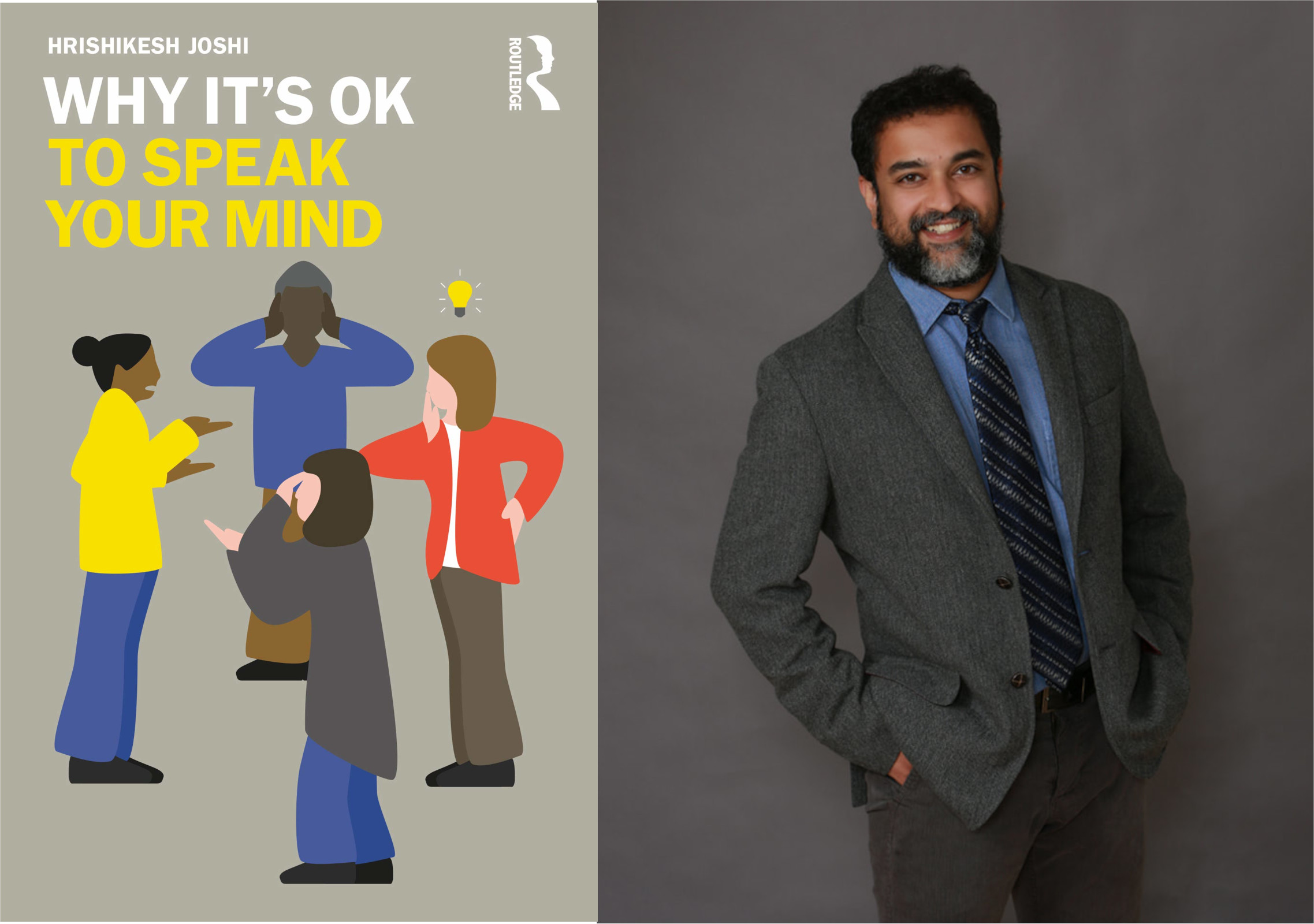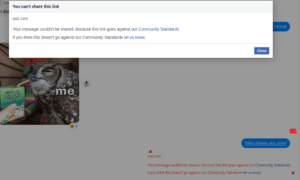Every year I try to read a set number of books (30 this year). I’ve been decreasing the number over the years because blogs and academic articles have become so much more readily available and better. Why read a book, already at least slightly out of date, when blogs will provide you with up to date summaries? This has prompted various writers to say that the age of the book is over. There is some truth to this. However, blogs have much higher variance in quality, so it takes some knowledge to find the good stuff is (see my 2023 blogs to read list). If one is not cautious, one could get caught up in some fringe belief network.
Evidently, I think there is still value to books. The main problem with books is that most of them are too long. Reading (many) books thus becomes an exercise in training your skill to ‘speed read’. Here I don’t mean some technique where you can just glance at words with full comprehension (this doesn’t work). I mean skipping ahead or glancing over text when one encounters content that one is already familiar with (I don’t need to read more summaries of Hume’s problem of induction). It was therefore a pleasure when I remembered that I should read Hrishikesh Joshi’s 2021 book Why It’s OK to Speak Your Mind, because it is one of those short (196 pages) and to-the-point books that remind me why books are still the best for some topics. While one could write a 200 page blogpost, or split it up, a book can package everything you need to know into a single coherent whole.

The topic of the book appeals to me given the current situation with the Guardian/Spiegel/Hate not Hope spy that infiltrated my research institute. The Guardian has been triumphantly posting articles about this, as has their German counterparts (though the institute has nothing to do with Germany). The main lesson from this is that we were not sufficiently cautious against such evil people. Mainly, I think, because our small time operation was hardly of interest to many people. The lackluster attention that the Guardian’s articles have gathered so far seems to confirm this take. While the journalists thought this was super exciting, thinking of themselves as running a modern James Bond, the readers saw this as kinda meh. After all, the entire revelation was that: 10-15 nerds regularly meet to talk about science in private. Not much different from weekly lab meetings at a university.
However, on a personal level, this experience made it very clear to me that there are costs to speaking your mind on some topics. Yet, that is precisely what Joshi tries to convince the reader to do. Helpfully, he provides a synopsis in the introduction, but which is still too long, so I fed it into GPT4o, which gave me this:
The “epistemic commons” refers to the shared pool of knowledge and ideas within a community, which is vital for collective understanding. Social pressure, however, can distort this commons by suppressing certain evidence or perspectives, as seen in events like the Chernobyl disaster. In democracies as well, social pressure can create blind spots, leading to skewed perceptions. Individuals have a duty to resist such pressure and contribute to the epistemic commons by speaking their minds, especially when withholding evidence can harm collective understanding.
Speaking out also serves personal development, as reasoning is fundamentally social. Following thinkers like Aristotle and Socrates, the text argues that living a good life involves actively exercising reason and integrity by expressing one’s views. Philosophers like Mill and Nietzsche, who valued independence and nonconformity, remind us that such expression is crucial to resisting cultural pressures and fostering both individual and societal growth. Ultimately, contributing to the epistemic commons is not only about benefiting society but also about living a meaningful and independent life.
I think it’s a pretty fair summary. The chapters are:
- The Epistemic Commons
- A Duty to Speak Your Mind
- Challenges and Temptations
- Developing as a Thinker
- Independence and the Good Life
The idea of the epistemic commons is that humans do not work in a vacuum when it comes to reasoning. It’s a social undertaking. A lone genius will occasionally make great progress by themselves, but generally speaking, they shine when they build upon the works of others and engage in productive dialog. Newton, the prototypical lone genius, famously said: “if I have seen further [than others], it is by standing on the shoulders of giants” (which in fact is a paraphrased from an earlier saying). From this perspective, the way a society figures out what is true and what is false is by having many different actors play each other in a kind of epistemic game. Loosely speaking, you get points when you say things that are true and get vindicated. You lose points for the opposite. The efficiency of this truth-finding system depends upon certain features of it, including its members. One such property is whether people with uncommon or unpopular views will speak up or stay quiet. Sometimes an idea that is currently unpopular is actually true. Anyone who reads history will eventually learn that people in the past thought things that we now consider false and even crazy (e.g. bloodletting). Why then should anyone think our current collective worldview — the current most popular belief on each question — is entirely right? That’s the historical argument for epistemic humility. Are all of our currently common behaviors morally optimal? No one could believe this after reading a bit of history. The only way to figure out what things currently believed are in fact false is to tentatively challenge the popular opinion. That is to say, to speak up. So someone must speak up for the benefit of all of us. Joshi thinks we should do more of this.
However, speaking up has personal costs, so the situation is a kind of tragedy of the (epistemic) commons. By voicing an unpopular opinion, you might be merely considered eccentric, but other times you might be considered evil, or even punished by the state (UK and Germany are infamous for illiberally arresting and jailing people for saying trivial things on Facebook). Most free speech debates concern the state’s ability to punish people (“hate speech” laws, first amendment in USA), but Joshi points out that this is usually a minor part of the cost for a given person. The costs are mostly social. You might not get invited to the next family dinner, or your uncle will ask your mom questions about your beliefs. This is not a new thing either. Joshi quotes Bertrand Russell, speaking in the 1970s:
Legal penalties are, however, in the modern world, the least of the obstacles to freedom of thought. The two great obstacles are economic penalties and distortion of evidence.It is clear that thought is not free if the profession of certain opinions makes it impossible to earn a living. It is clear also that thought is not free if all the arguments on one side of a controversy are perpetually presented as attractively as possible, while the arguments on the other side can only be discovered by diligent search.2
When people justify censorship laws or practices, they almost always do this in terms of the social costs of people believing such things. The exact terms used fluctuate over time, but the idea is always the same: some speech is either directly harmful or leads to harms and should therefore be limited or prevented with fines or other harassment for those who dare say it. It’s a utilitarian argument for censorship. The main issue with these kinds of arguments is that the promoters almost never try to actually justify their claims of harm:
Furthermore, when people make claims about particular bits of evidence or forms of inquiry being best left suppressed, what justifies their confidence? Being able to justifiably believe such claims would seem to require some kind of multiple regression analysis, or better yet, a randomized control trial—that’s how we do good social science. Perhaps some set of societies allows for open inquiry into matter X, while another set, roughly on par with respect to various indicators, doesn’t. If the latter eventually ended up being better off along various dimensions of importance, then it might be concluded that X is best left untouched. But notice that such analyses are not (and often cannot be) conducted, and so the claim that X is best left untouched is meant to be taken on faith or intuition. The sorts of evidence that would justify belief in such claims, then, are conspicuously absent. It’s therefore difficult not to suspect that efforts to make particular forms of evidence and inquiry verboten are actually efforts to protect an ideology that some have affective or political investment in, whose foundations are shaky—much like the agents of the Church in Galileo’s time.
In addition, the nobility of lies is extremely context dependent.When the context changes, a lie that once looked noble might become very dangerous. Thus, for example, imagine an ancient village which believes that a particular tree is sacred.14 Perhaps this belief allows for social cohesion and group loyalty. Maybe these bonds are important enough for the flourishing of the village that one might think people raising doubts about the sacredness of the tree do the village a disservice. The sacredness of the tree then, though a lie, is a perhaps a noble lie.
The arguments for censorship come up frequently regarding research into into genetics, intelligence, race, and especially their combination. What good can come out of this work? Eric Turkheimer famously wrote:
If it is ever documented conclusively, the genetic inferiority of a race on a trait as important as intelligence will rank with the atomic bomb as the most destructive scientific discovery in human history.
But what evidence did Turkheimer supply for this claim? Nothing. Presumably, it was obvious to him. What evidence did people who said similar things about Arthur Jensen’s 1969 article present? Nothing. Steelmanning the position, the best evidence one can present is that occasionally, some crazy person with very racist views who referred to such research goes out shooting members of the race they don’t like (e.g. Breivik, Christchurch). By extrapolation, then, it is presumed that if such research was more popular or more widely disseminated, many more such shootings would occur. Maybe there would be another ethnic cleansing or genocide, holocaust being the go-to example of course (many of the censorship advocates are Jews who often have some ancestor who was killed by the Nazis). I don’t think the historical record bears this out. People have been killing each other for all sorts of reasons since before history began. Genocides and population replacement is common in history and clearly did not need scientific justification. The contribution of a few lone wolf shooters is tiny compared to ordinary citizens killing each other for mundane reasons (money, love/jealousy, offense etc.). But even if one accepts some increased deaths due to lunatics, there may be other outcomes that are even worse if one tries to build a society based on lies. Jensen himself wrote presciently on this in the 1970s, and I won’t go into detail again here. For those interested, see these defenses of free inquiry in science:
- Cofnas, N. (2020). Research on group differences in intelligence: A defense of free inquiry. Philosophical Psychology, 33(1), 125-147.
- Cofnas, N. (2016). Science is not always “self-correcting” fact–value conflation and the study of intelligence. Foundations of Science, 21, 477-492.
- Carl, N. (2018). How stifling debate around race, genes and IQ can do harm. Evolutionary Psychological Science, 4(4), 399-407.
- Meisenberg, G. (2019). Should cognitive differences research be forbidden?. Psych, 1(1), 306-319.
Fittingly, the authors of these papers have all been fired for related opinions. Academia is sadly a place characterized by extreme intolerance.
Furthermore, the same historical argument for humility regarding widely held beliefs also applies to the ‘noble lies’ censorship idea:
Now, some will quickly admit that many (or most) societies in the past were radically wrong about which pieces of evidence or which arguments were dangerous. But they might say that we, now, have a roughly good grasp on what’s best left unsaid. But notice how odd it would be to think that this age and this cultural context is infallible in its judgment about such matters. “All human societies in the past have erred, but we are absolutely right,” is an attitude that, though implicit and pervasive, upon reflection merits incredulity. What a convenient denial of basic inductive reasoning! In this vein, Mill writes: “Yet it is as evident in itself as any amount of argument can make it, that ages are no more infallible than individuals; every age having held many opinions which subsequent ages have deemed not only false but absurd; and it is as certain that many opinions, now general, will be rejected by future ages, as it is that many, once general, are rejected by the present.”16
The temptation here is to think that yes, our zeitgeist might be mistaken about a few peripheral things, but eventually we’ll inevitably make progress. Nonetheless, we should be aware of the possibility that what looks like progress might actually be a regress, and that the zeitgeist is mistaken not simply on peripheral matters, but in its most fundamental assumptions. The historical record gives us very strong inductive evidence for worrying about this. As Mill says, “History teems with instances of truth put down by persecution. If not suppressed for ever, it may be thrown back for centuries.”17 If this is right, then the dissenter is a crucial element in all eras, not just past ones.
One can find numerous examples of views that were suppressed historically, but turned out to be not just true, but extremely harmful to deny. A favorite example is how opposition to germ theory lead to refusals to accept or properly test the ideas of Semmelweis. He had noticed that doctors who came directly from the morgue/cadaver room tended to be associated with mothers dying of infections after giving birth. There was no handwashing since people didn’t believe in invisible (to our eyes) tiny creatures on their hands. Thousands of mothers died as a result of this malpractice. We rightfully credit Semmelweis with being the savior of methods. What credit did Semmelweis get for this extremely important discovery?
Despite his research, Semmelweis’s observations conflicted with the established scientific and medical opinions of the time and his ideas were rejected by the medical community. He could offer no theoretical explanation for his findings of reduced mortality due to hand-washing, and some doctors were offended at the suggestion that they should wash their hands and mocked him for it. In 1865, the increasingly outspoken Semmelweis allegedly suffered a nervous breakdown and was committed to an asylum by his colleagues. In the asylum, he was beaten by the guards. He died 14 days later from a gangrenous wound on his right hand that may have been caused by the beating.[4]
There are many other cases in history like this. If we want to avoid these colossal collective failures, someone must speak up for minority opinions. Joshi is saying that you have to do your part.

Joshi isn’t saying that you should speak up in all cases at all times, just that, sometimes you should. When it is opportune, or the cost to yourself is relatively low, but might be a big gain to someone else who advocated a minority opinion. Joshi is in other words trying to convince you to be a man, not a crybaby. You should act like juror 9 in 12 angry men.
Moving beyond the immediate reason for speaking up, you might be wondering more generally: when am I going with the flow too much? Anonymous surveys always show that just about every policy and belief has some disagreement, and this is no different among experts in general. For instance, in a recent anonymous survey of 470 American psychology professors, they were asked about their belief in 10 much debated claims:
- The tendency to engage in sexually coercive behavior likely evolved because it conferred some evolutionary advantages on men who engaged in such behavior.
- Gender biases are not the most important drivers of the under-representation of women in STEM fields.
- Academia discriminates against Black people (e.g., in hiring, promotion, grants, invitations to participate in colloquia/symposia).
- Biological sex is binary for the vast majority of people.
- The social sciences (in the United States) discriminate against conservatives (e.g., in hiring, promotion, grants, invitations to participate in colloquia/symposia).
- Racial biases are not the most important drivers of higher crime rates among Black Americans relative to White Americans.
- Men and women have different psychological characteristics because of evolution.
- Genetic differences explain non-trivial (10% or more) variance in race differences in intelligence test scores.
- Transgender identity is sometimes the product of social influence.
- Demographic diversity (race, gender) in the workplace often leads to worse performance.

The plot shows the degree to which the professors believe in, self-censor about, and favor discouragement about voicing these beliefs. The error bars show the +/- standard deviation, which is included just to show how wide mainstream American psychology professor opinion is about each of these (the error bars contain about 68% of the opinion range). Despite what the media tells us, the majority opinion is that sex is binary, and even genetic race differences in intelligence is not that much of a minority opinion, with the average professor expressing about 23% belief in this. None of these scientific questions show any strong consensus contrary to popular claims. So even though it seems many of these beliefs are expert consensus, we know that this is an illusion created by failure to speak up.
Humans in general are inclined to go with the flow. This keeps the social peace and avoids the risk of starting an unpleasant debate at a family dinner or business meeting. Joshi provides a heuristic to figure out when maybe you are going too much with the flow:
Thus, in many cases, it will be hard to tell if we’re just vying for status or actually speaking our minds despite social pressure not to. But here’s perhaps a rule of thumb. If saying something gets you showered in praise by members of your reference network— the group whose approval matters to your social and professional life—you’re likely vying for social status rather than speaking your mind. Thus, consider a person who writes a post on social media couched in the language of conviction and bravery. Suppose also that most of his friends or followers on the platform are representative of his reference network—they are colleagues, real-life friends, members of the profession he works in, etc. Now imagine the post gets hundreds of likes, with scores of comments chiming in to agree with the sentiment, perhaps even commending the bravery of writing the post. Such a person is vying for status, no matter what he tells himself. He is simply not speaking his mind against the social pressure.
It reads almost like a how to be Richard Hanania guide (make sure no one likes everything you say, while making sure everybody likes something). I share the same instinctive contrarianism. When people too readily agree with me, I wonder if we are in a belief bubble and start considering the alternative view.
Later in the book, Joshi gets into another reason why speaking up is important for mankind. Namely, it helps prevent what Robin Hanson calls (global) monoculture. Given the spread of English since WW2, it seems eventually the entire world will speak English. If we grant that cultural distance is mainly caused by communicative distance, this will mean that all human cultures will gradually merge to become one global Anglosphere, though at this point no longer dominated by actual Anglos or even Europeans, at least numerically speaking. If in such a future monoculture, the collective belief arrives at some conclusion which is wrong, and no one speaks up, it is difficult to see how the error could be fixed. In the past, without a widely spoken international language and global, instant communication, it was easy for different cultures to adopt different beliefs. One could then indirectly see which beliefs worked out best in practice by comparing the cultures. In theory at least. (This argument is the same as that in favor of political decentralization.) This worry seems quite modern, but in fact, John Stuart Mill already had the same idea based on his perception of the homogenization of British culture in his own time:
Mill worried about increasing homogeneity in his own time in the mid-to-late 19th century. People were being brought under one common influence through the rapid of trade. Newspapers played an important role in the homogenization of opinion, as did formal education. “Formerly, different ranks, different neighborhoods, different trades and professions, lived in what might be called different worlds . . . they now read the same things, listen to the same things, see the same things,” wrote Mill. In order to combat this homogenization, he thought, people must consciously come to embrace social norms that prize diversity of thought and expression. Otherwise, “if resistance waits till life is reduced nearly to one uniform type, all deviations from that type will come to be considered impious, immoral, even monstrous.”49
Now, in democratic countries, cultural homogenization is not directed. At many points in recent history, it was. People living under the regimes of Stalin or Hitler were all supposed to think the same things and want the same things. And this was enforced top-down by these regimes through harsh for deviation. Furthermore, the regimes consciously decided what propaganda to disseminate to the masses. But just because there is little by way of such top-down, engineered, cultural homogenization within modern democracies, we shouldn’t conclude that it isn’t taking place or that it isn’t detrimental. The homogenization can be a order, so that each individual responding to the incentives they have can act in a way so as to move the culture towards a particular equilibrium.50
…
But blind spots threaten the future of humanity—both in terms of its existence and its flourishing. Moreover, there are advantages that peoples throughout history have had, which we increasingly do not. For one, many of their errors only affected their circumscribed contexts. The crusaders had no effect on people living in China. And while women in China suffered from foot binding for centuries, the practice had no effect on women in India. There was a great variety of cultures so that even if one turned repressive, people could still flourish elsewhere. During the European dark ages, for instance, and philosophy still flourished elsewhere in the world— particularly, the Middle East and Asia. The more our global culture homogenizes, however, the less scope there is for this kind of thing to happen. All our eggs are increasingly in one cultural basket.
One of the reasons why reading historical works is important is that the past is a different culture, and reading about how, say, Plato or Hume thought about something makes one reconsider how we think about it now. Greek morals, for instance, is not generally utilitarian. It is about acting like a good person. So a man should be brave, but not too brave, should be industrious but not too much etc. One can thus make a kind of argument like this for speaking up: be cool like Semmelweis, Galileo, and Barry Marshall. Be a belief chad.

